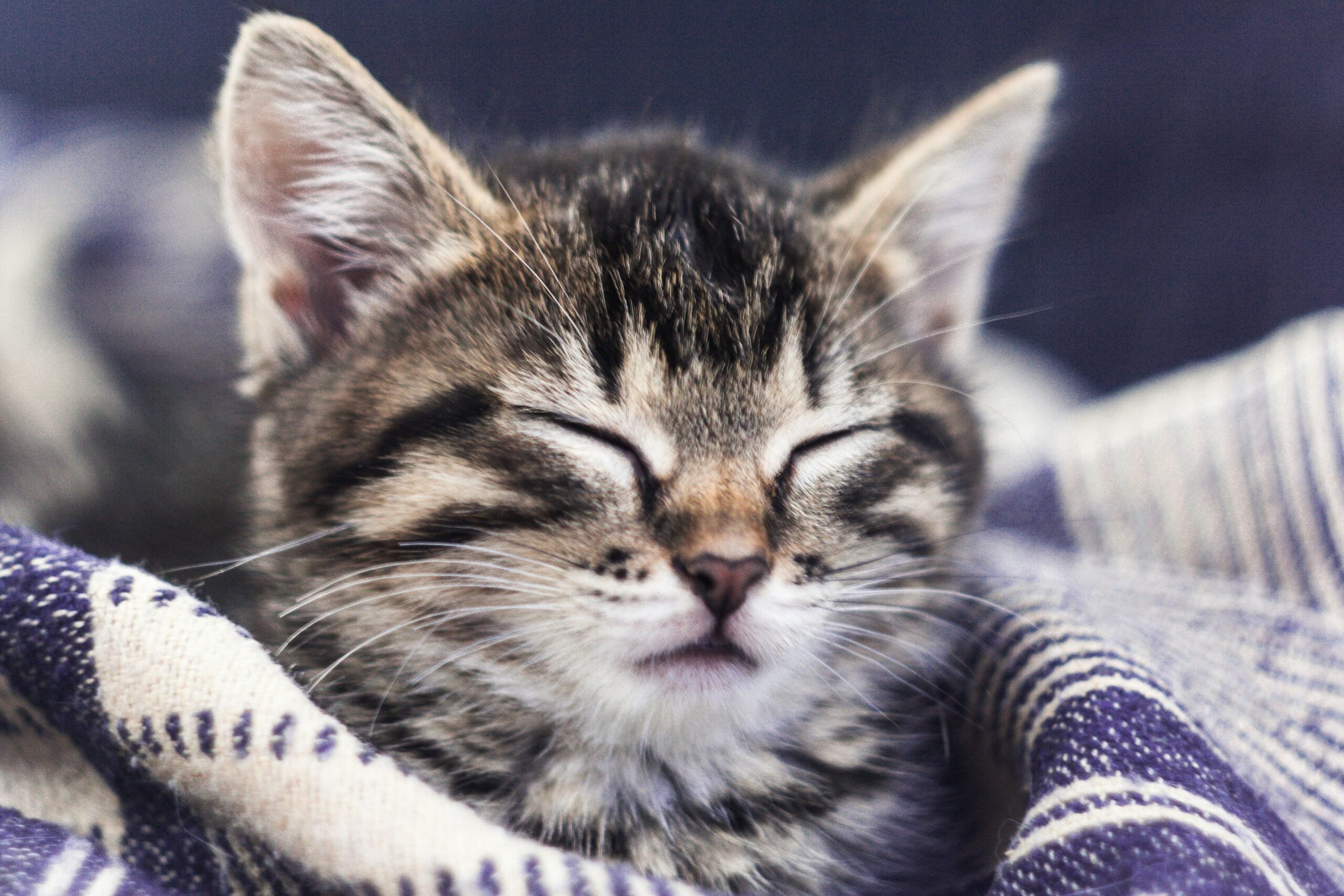Have you ever wondered why your cat seems to spend most of its day sleeping? If you’re a cat owner, you’ve probably noticed that your furry friend can snooze anywhere, anytime, and for hours on end. While it might seem like laziness, this behavior is entirely normal and even essential for your cat’s health. Let’s explore the science and reasons behind why cats sleep so much.
How Much Do Cats Sleep?
On average, cats sleep between 12 to 16 hours a day, with some cats sleeping up to 20 hours! This means cats spend nearly two-thirds of their lives sleeping. Kittens and senior cats tend to sleep even more due to their need for extra rest and recovery.
But why such long hours of sleep? To answer that, we need to look at a cat’s biology, evolutionary history, and lifestyle.
Evolutionary Roots: Born to Hunt and Rest
Cats are predators by nature. In the wild, their ancestors relied on hunting for food, which required short bursts of intense energy and focus. This means cats are biologically programmed to conserve their energy for hunting. Once a wild cat expended energy hunting and eating, it needed long periods of rest to recover and prepare for the next hunt.
Even though your domestic cat may not need to hunt for its next meal, this evolutionary behavior is still deeply ingrained. That’s why your indoor kitty often snoozes the day away—it’s preparing for the next “play session” or burst of energy, just like its wild ancestors prepared for the next hunt.
Energy Conservation and Sleeping Patterns
Cats are crepuscular, which means they are most active at dawn and dusk. These hours coincide with the times when prey animals, like mice and birds, are most active. For the rest of the day, cats sleep to conserve energy.
While it might seem like your cat is sound asleep, feline sleep cycles are unique. Cats experience two main types of sleep:
- Light Sleep (Catnaps): Most of a cat’s sleep is light and lasts for short periods. During these naps, cats remain alert to their surroundings, with their ears twitching at sounds or eyes slightly open. This light sleep allows them to wake up quickly if needed.
- Deep Sleep: Cats also enter deep REM (Rapid Eye Movement) sleep, during which they experience dreams, just like humans. Deep sleep is crucial for physical recovery, brain function, and overall health.
Age, Health, and Lifestyle
The amount of sleep a cat needs also depends on its age, health, and activity level:
- Kittens sleep up to 20 hours a day as their bodies grow and develop.
- Adult cats sleep about 12-16 hours daily, depending on their lifestyle.
- Senior cats need more sleep due to their slower metabolism and aging bodies.
If your cat is extremely active, it may need more sleep to recover. Conversely, sudden changes in sleep patterns could indicate underlying health issues, such as stress, obesity, or illness, so it’s essential to monitor their habits.
Weather and Comfort
Just like humans, cats tend to sleep more when it’s cold, rainy, or gloomy outside. A warm, sunny spot by the window or a cozy blanket can send your cat into nap mode. Additionally, cats love comfort and security—finding the perfect napping spot is almost an art form for them!
The Role of Domestication
Domestic cats lead comfortable lives with steady access to food and fewer threats compared to their wild counterparts. Without the need to hunt, fight for survival, or fend off predators, they have more time to relax and sleep. Your cat’s sleep-filled lifestyle is a reflection of their safety and well-being in your home.
Should You Worry About Your Cat’s Sleeping Habits?
While it’s perfectly normal for cats to sleep a lot, sudden changes in their sleeping patterns may signal a health issue. Signs to watch for include:
- Excessive lethargy or reluctance to wake up
- Restlessness or trouble sleeping
- Reduced appetite or weight loss
- Excessive hiding or isolation
If you notice any of these symptoms, consult your veterinarian for a thorough check-up.
Final Thoughts
Cats sleep so much because it’s hardwired into their biology. From conserving energy for hunting to adapting to domestic comfort, sleep is a vital part of their lives. While it might seem like your cat is always snoozing, those naps are essential for their health, happiness, and natural instincts.
So the next time you see your feline friend curled up in a sunbeam or snoozing on your lap, know they’re simply being their authentic, sleepy selves. It’s all part of the charm of having a cat!

